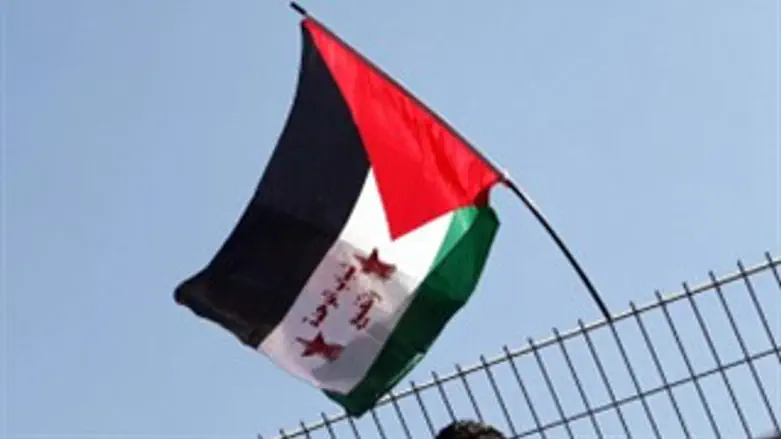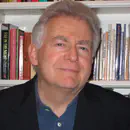

Palestinian terrorists are not militants. They are not revolutionaries. They are not freedom fighters. Hamas and Fatah operatives are merely murderers. Just when we think that the Obama administration might finally have begun to call things by their correct names, U.S. Permanent Representative to the United Nations, Samantha Power, resurrects the old "cycle of violence" shibboleth. After speaking on February 23, at the UCLA Burkle Center for International Relations, Ambassador Power tweeted that "Daniel Pearl's story is a reminder that individual accountability and reconciliation are required to break cycles of violence." Although Ms. Power certainly meant no disrespect for Mr. Pearl, the Wall Street Journal reporter who was kidnapped and executed by a Jihadist group, her selected language plainly implied some sense of moral equivalence or shared responsibility in the region.
Just when we think that the Obama administration might finally have begun to call things by their correct names, U.S. Permanent Representative to the United Nations, Samantha Power, resurrects the old "cycle of violence" shibboleth. After speaking on February 23, at the UCLA Burkle Center for International Relations, Ambassador Power tweeted that "Daniel Pearl's story is a reminder that individual accountability and reconciliation are required to break cycles of violence." Although Ms. Power certainly meant no disrespect for Mr. Pearl, the Wall Street Journal reporter who was kidnapped and executed by a Jihadist group, her selected language plainly implied some sense of moral equivalence or shared responsibility in the region.
For too long, the phrase "cycle of violence" has been applied generally and inappropriately to Israel/Arab conflict in the Middle East. Always, whatever the actual intent of the particular user, the effect is to create some sense of plausible symmetry between terrorism and counter-terrorism, between base criminality and necessary law-enforcement. In fact, of course, there has never been any true "cycle of violence" between Arabs and Israelis, only an incessant targeting of Israeli noncombatant populations by gratuitous killers, and an unavoidable reciprocal resort by Israel to national self-defense.
Ritually, Hamas, Fatah, Islamic Jihad, the Democratic Front for the Liberation of Palestine (DFLP), etc. - it makes no real difference - invariably explain their explosions of violence against the innocent as "resistance to occupation." But where, exactly, are the Israeli "occupiers" in Gaza? Incontestably, they are long gone, a manifestly risky departure mandated years ago by then Prime Minister Arik Sharon's "disengagement."
And the "West Bank", what Israel prefers to call Judea/Samaria? We may recall that the Palestine Liberation Organization (PLO) was formed in 1964, three years before there were any "Israel Occupied Territories." What, then, were the Palestinian Arab fighters attempting to "liberate?"
Even now, by systematically launching their rocket attacks from populated Gaza areas, Hamas and Islamic Jihad (Al-Quds Brigades) unhesitatingly resort to the strongly-prohibited practice of human shields. In normal parlance, one would call any policy of hiding behind one's own women and children for safety as barbaric. In law, however, the formal term for such exceptional and punishable cowardice is "perfidy."
"Moderate" Fatah, supported by millions in U.S. tax dollars, and trained in nearby Jordan by American General Keith Dayton, revealed in its Internal Order Document (Article 17): “The armed popular revolution is the only inevitable way to the liberation of Palestine.” And at Article 19: “The struggle will not end until the elimination of the Zionist entity, and the liberation of Palestine.”
“Palestine,” of course, includes all of Israel. On all official Palestinian maps, Israel is expressly identified as "Occupied Palestine." More precisely, according to several prominent Hamas bulletins: "Haifa, Jaffa, and Tel-Aviv...all of Palestine, will be liberated."
The Palestine Liberation Organization was founded in 1964. What was the PLO seeking to liberate from 1964 - 1967? What was the rationale for persistent Arab "Fedayeen" terror from the 1949 armistice, until June 1967?
During that eighteen-year period, Gaza was held illegally by Egypt, and the West Bank (Judea/Samaria) illegally by Jordan. In that time, the idea of independent Palestinian statehood was never supported in either Cairo or in Amman. Religiously, this lack of support has identifiable foundations in the Koran, which never mentions "Palestine," and which grants (see Sura 26, verse 59) Israel as an inheritance exclusively to the Jewish People.
Even as the Palestinian Authority seeks incremental statehood through the back door of the UN General Assembly (in November, 2012, the GA elevated PA status to that of a "nonmember observer state"), Fatah’s position calls unambiguously for more terrorism. From the standpoint of international law, there is no reasonable way that such a refractory stance could ever be judged comparable or equivalent to Israel’s commitment to oppose egregious international criminality. To argue otherwise – to suggest openly, or even tacitly, that there remains some sort of “cycle of violence” in the Middle East – would be tantamount to accepting the following:
(1) a duly constituted democratic state, and a criminal terror organization are somehow of an equivalent legal stature; and
(2) terrorist leaders and defenseless civilians somehow represent equally permissible targets.
Doubtlessly, there are always palpably vital differences between criminality and law-enforcement. The ongoing "war" between Hamas and Israel is a quintessential and unassailable case in point.
Even if the incessant Palestinian refrain of an Israeli "occupation" were not concocted, and even if the contrived corollary claims of "stolen Palestinian land" could make any authentic sense, there could still never be any legal justification for the deliberate Fatah and Hamas policies of terror.
As long as Israel yields to pressure from Washington to travel along a suicidal "Road Map," Palestinian “suicide” bombers will re-emerge with expanded enthusiasm and destructiveness. These terrorists will fight for their own personal reputations, and, ultimately, for their own personal immortality. In actuality, however counterintuitive and unrecognized, they fear death even more intensely than do ordinary human beings. This is because the "suicide" that they expect to suffer is only a momentary inconvenience, a tolerably transient discomfort on the blessed propulsion into "paradise."
Palestinian Arab terrorists are not militants. They are not revolutionaries. They are not freedom fighters. Rather, their expected "martyrdom" is a desperate and hideous way to defy personal death. When packing explosives with nails, screws, and razor blades dipped in rat poison, Hamas and Fatah operatives are merely murderers. And when, killing at a much safer distance, they fire rockets into Israeli schools, shelters, and hospitals, they are also cowards.
Terror groups never have any right to "retaliate" under international law, no more so than would an individual criminal in domestic society have such a right against municipal police authorities. Indisputably, on the basis of their own current statements and platforms, Fatah, Hamas, Islamic Jihad, and DFLP are organizations that recognize absolutely no boundaries in the use of violence
Such boundaries, however, do exist in jurisprudence. They remain a critical and binding component of humanitarian international law, or the authoritative Law of War.
There has never been a "cycle of violence" in the Middle East. For the so-called international community, and for the incumbent administration in Washington, it is finally time to say so conspicuously; to stop alleging any sort of equality between relentless Palestinian terror, and indispensable Israeli counter-terror.
Although it is unlikely that Ambassador Power intended to imply any such equivalence, it would be best for President Barack Obama and his representatives to steer clear of this nefarious misnomer altogether.
---------------------------
LOUIS RENÉ BERES, Professor of International Law at Purdue, was educated at Princeton (Ph.D., 1971). He publishes widely on terrorism and international law. Dr. Beres is the author of many of the earliest major books dealing with nuclear war and nuclear terrorism, and with Israel’s nuclear strategy. In Israel, he was Chair of Project Daniel (2003). Professor Beres was born in Zürich,Switzerland, on August 31, 1945.
